I have a list of records generated from a search query in my View. There's certain fields that can be edited and next step is do update those fields with one button/action.
The yellow fields are the ones that have been edited, while the white fields still match what is in the database table. Now when I click update all I first get the values of sellprice and casecost from the DB, then I get the values from the form. If the values match then move on, if the values from the form have been changed then update. I have datareader that reads the values from the table/database perfectly fine for each line of records on page.
NpgsqlDataReader dr = cmd.ExecuteReader();
while (dr.Read())
{
var prod = new ProductViewModel();
prod.q_guid = Guid.Parse(dr["q_guid"].ToString());
prod.q_sellprice = Convert.ToDecimal(dr["q_sellprice"]);
prod.q_casecost = Convert.ToDecimal(dr["q_casecost"]);
/*
At this point
Need to compare dr.Read q_sellprice and q_casecost
with changed values in the fields
if != then update for that record
*/
/*Lets assign previous values (values in db) to variables*/
var previousSellprice = prod.q_sellprice;
var previousCasecost = prod.q_casecost;
var thatId = prod.q_guid;
/*Lets get current values from form/list*/
var priceList = Request.Form["item.q_sellprice"];
var costList = Request.Form["item.q_casecost"];
/*eg*/
if (previousSellprice != currentSellprice || previousCasecost != currentCasecost)
{
//lets update record with new values from view
}
-> loop move on to next row in view
My DataReader while loop can get the value of each row no problemo. What I am trying to achieve when it gets the values of the first row from the db, then
- I need to check what the current values in the form for that record are
- if they are different then update for that current row
- move on to next row in the view/on page
I have managed to get the array of values for these fields with these variables with the following code. This has the edited/changed fields from the list/form.
var priceList = Request.Form["item.q_sellprice"];
var costList = Request.Form["item.q_casecost"];
On my first run through the loop, I would like to get the values 10.00 and 8.50, do my check, update if necessary.. then move on the next row which will get 3.33 and 8.88, do my check, and update if necessary and so on for the rest of the records on that page.
So how can I loop through Request.Forms in the instance, and get my individual values for one record at a time?
cshtml on view for the fields is
@foreach (var item in Model)
{
<td>
€ @Html.EditorFor(modelItem => item.q_sellprice, new { name="q_sellprice" })
</td>
<td>
€ @Html.EditorFor(modelItem => item.q_casecost, new { name="q_casecost"})
</td>
Addition: Updating isnt the issue, getting the values of each record from the array while looping through the form fields is.


